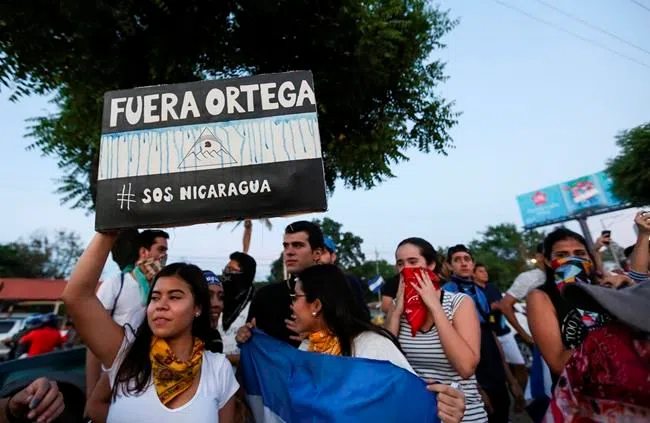
AP Explains: Nicaragua pension changes ignite fiery protests
MANAGUA, Nicaragua — Nicaragua has been rocked by a week of protests in which over two dozen people have been killed. The protests quickly spread nationwide, with scenes of massive rock throwing, burning barricades, tear gas and some gunfire. The dead included a journalist shot to death while transmitting live on social media. Dozens of shops were looted in Managua, the capital of this Central American nation of 6 million.
___
THE PENSION DECREE
The protest movement started when the Sandinista government of President Daniel Ortega issued a decree on April 16 increasing income and payroll taxes and changing pensions to try to shore up Nicaragua’s troubled social security system.
